
The Contras were the various U.S.-backed and funded right-wing rebel groups that were active from 1979 to 1990 in opposition to the Marxist Sandinista Junta of National Reconstruction Government in Nicaragua, which had come to power in 1979 following the Nicaraguan Revolution. Among the separate contra groups, the Nicaraguan Democratic Force (FDN) emerged as the largest by far. In 1987, virtually all Contra organizations were united, at least nominally, into the Nicaraguan Resistance.
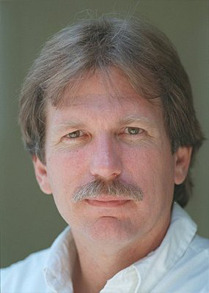
Gary Stephen Webb was an American investigative journalist.
The Nicaraguan Democratic Force was one of the earliest Contra groups, formed on August 11, 1981 in Guatemala City. It was formed to oppose Nicaragua's revolutionary Sandinista government following the 1979 overthrow of Anastasio Somoza Debayle. It merged the 15th of September Legion, which comprised mostly former members of Somoza's National Guard, with the Nicaraguan Democratic Union, an organization of émigrés from the business and professional classes. The new FDN also began assimilating the MILPAS movement, bands led by disenchanted former MAP-ML guerrillas. The FDN military was under the command of former National Guard colonel Enrique Bermúdez. The FDN was heavily backed by the Central Intelligence Agency and the Reagan administration. The FDN was also alleged to be engaged in drug trafficking in order to finance its war against the Sandinista government.
Oscar Danilo Blandón Reyes is a Nicaraguan born drug trafficker who is best known as one of the main subjects of the 1996 newspaper series "Dark Alliance" by reporter Gary Webb.
Robert Earle Parry was an American investigative journalist. He was known for his role in covering the Iran–Contra affair for the Associated Press (AP) and Newsweek, including breaking the Psychological Operations in Guerrilla Warfare and the CIA involvement in Contra cocaine trafficking in the U.S. scandal in 1985.
Édgar Chamorro Coronel is an ousted leader of the Nicaraguan rebel Contras who later became a critic of the rebels and their Central Intelligence Agency sponsors, even cooperating with the Sandinista government in their World Court case, Nicaragua v. United States. He is a member of the prominent Chamorro family that provided five of Nicaragua's past presidents.

The United States Central Intelligence Agency (CIA) has been accused of involvement in the trafficking of illicit drugs. Books and journalistic investigations on the subject that have received general notice include works by the historian Alfred McCoy, professor and diplomat Peter Dale Scott, journalists Gary Webb and Alexander Cockburn, and writer Larry Collins. These claims have led to investigations by the United States government, including hearings and reports by the United States House of Representatives, Senate, Department of Justice, and the CIA's Inspector General. The various investigations have generally not led to clear conclusions that the CIA itself has directly conducted drug trafficking operations, although there may have been instances of indirect complicity in the activities of others.

The Kerry Committee was a US Senate subcommittee during the 100th United States Congress that examined the problems that drug cartels and drug money laundering in South and Central America and the Caribbean posed for American law enforcement and foreign policy. The Sub-Committee was chaired at the time by Democratic Party Senator John Kerry from Massachusetts so the name of the committee and the report are often referred to under his name.
A number of writers have alleged that the United States Central Intelligence Agency (CIA) was involved in the Nicaraguan Contras' cocaine trafficking operations during the 1980s Nicaraguan civil war. These claims have led to investigations by the United States government, including hearings and reports by the United States House of Representatives, Senate, Department of Justice, and the CIA's Office of the Inspector General which ultimately concluded the allegations were unsupported. The subject remains controversial.
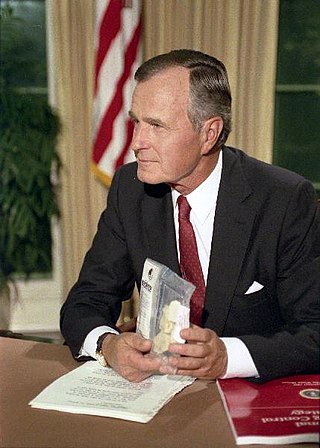
The crack epidemic was a surge of crack cocaine use in major cities across the United States throughout the entirety of the 1980s and the early 1990s. This resulted in a number of social consequences, such as increasing crime and violence in American inner city neighborhoods, a resulting backlash in the form of tough on crime policies, a massive spike in incarceration rates, and a sharp escalation of the war on drugs.
José Aristides Sánchez Herdocia served as a key political figure among the Nicaraguan Contras. Early on, he joined Enrique Bermúdez in efforts to start a rebel opposition to the new Sandinista government, a hand-picked choice of the CIA for this position. As the conduit between political leader Adolfo Calero in Miami and rebel base camps in Honduras, he spent more time in the camps than other Contra politicians and had the trust of the rebel field commanders. After working largely behind the scenes, in 1987 he joined the directorate of the Nicaraguan Resistance.
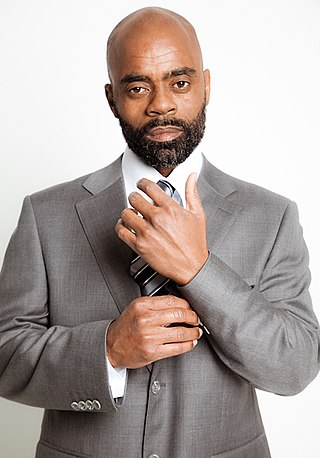
Ricky Donnell "Freeway Rick" Ross is an American author and former drug lord best known for the drug empire he established in Los Angeles, California, in the early to mid 1980s. He was sentenced to life in prison, though the sentence was shortened on appeal and Ross was released in 2009.

This is a bibliography of selected works about Nicaragua.
The Fifteenth of September Legion was an anti-communist guerrilla group founded in Guatemala by exiled former junior officers of the defeated Nicaraguan National Guard, which was committed to overthrowing the Sandinista National Liberation Front government.
Celerino Castillo is a former agent for the United States Drug Enforcement Administration (DEA).
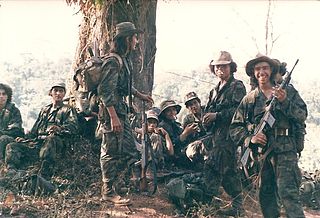
CIA activities in Nicaragua were frequent in the late 20th century. The increasing influence gained by the Sandinista National Liberation Front, a left-wing and anti-imperialist political party in Nicaragua, led to a sharp decrease in Nicaragua–United States relations, particularly after the Nicaraguan Revolution. In 1981, President Ronald Reagan authorized the Central Intelligence Agency to support the Contras, a right-wing Nicaraguan political group to combat the influence held by the Sandinistas in the Nicaraguan government. Various anti-government rebels in Nicaragua were organized into the Nicaraguan Democratic Force, the first Contra group, at the behest of the CIA. The CIA also supplied the Contras with training and equipment, including materials related to torture and assassination. There have also been allegations that the CIA engaged in drug trafficking in Nicaragua.

Kill the Messenger is a 2014 American biographical crime thriller film directed by Michael Cuesta and written by Peter Landesman. It is based on the book of the same name by Nick Schou and the book Dark Alliance by Gary Webb. The film stars Jeremy Renner, who also produced the film. The film was released on October 10, 2014, and depicts a reporter's suppressed attempts to cover the CIA involvement and secret support of large scale cocaine sales to fund the Nicaraguan Contras.
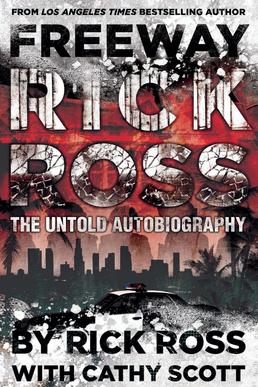
Freeway Rick Ross: The Untold Autobiography is a 2014 memoir by former drug kingpin Rick Ross, co-authored by American crime writer Cathy Scott, about the rise and fall of Ross, in the 1980s and '90s, to his 2009 release from prison. The book was released by Freeway Studios in June 2014.

Kill the Messenger: How the CIA's Crack-cocaine Controversy Destroyed Journalist Gary Webb is a biography of investigative journalist Gary Webb, focusing on his 1996 "Dark Alliance" investigative series in the San Jose Mercury News. The series linked the 1980s' crack cocaine trade in the United States and the CIA-backed Nicaraguan Contras.











